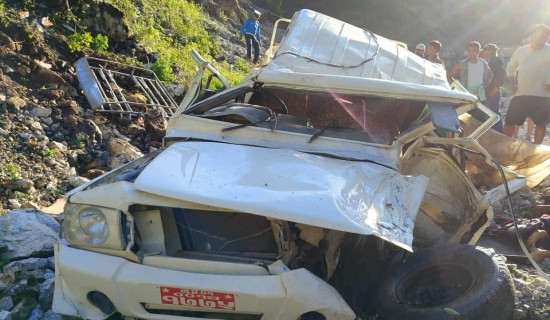- Saturday, 14 June 2025
Health Insurance Scheme
Basic health services are enshrined as fundamental rights in the Constitution of Nepal, which entitles basic health care to every Nepali citizen regardless of his/her income or social status. Health is also prioritised in the Sustainable Development Goals (SDGs), one of whose agendas is to promote wellbeing by ensuring healthy lives. To this end, Nepal has made significant strides in recent years towards achieving universal health coverage (UHC), implementing a host of policies and programmes to enhance access to healthcare services for all its citizens. One such initiative undertaken by the government is the establishment of a national health insurance programme (NHIP), launched in 2016 with the aim of providing affordable health insurance coverage. With this kind of insurance, one can access a wide coverage and a number of benefits that can make a difference in times of health crisis.
The importance of our health is second to none. And how precarious it can get at times became clear when the world was under the grip of COVID-19 pandemic. This uncertainty coupled with the skyrocketing cost of medical treatment, which disproportionately burdens the low-income families, necessitates a cushion to soften the blow. And it is such coverage that comes to rescue when in medical distress. By eliminating financial barriers, it prevents the marginalisation of vulnerable populations and reduces health disparities. When everyone has equitable access to healthcare, society becomes fairer and more inclusive. Health insurance not only provides safety and protection in times of need, but also gives the insured a sense of financial security in the event of medical eventuality.
Universal health coverage is more than a moral imperative; it is also a smart investment in the well-being and prosperity of nations. By ensuring that all individuals have access to affordable, quality healthcare, a government can create a fairer, more equitable society, delivering social justice in the process. When individuals are not burdened by exorbitant healthcare costs, they can invest in education, housing and other essential needs, fueling economic growth. Furthermore, this investment in health is also crucial to boost the productivity of the citizenry.
But, despite having outsize importance, the NHIP is gradually losing its shine among the public. A string of problems have been attributed to this. They include a lack of well-trained medical professionals in the affiliated health centres, poor service delivery, government falling short in classifying those living below the poverty line, lack of medicines in designated pharmacies, and inadequate medical equipment, among others. What's more, inordinate delays in disbursement of insured money due to lengthy claim process has really forced some beneficieries to question the usefulness of the scheme.
To address these problems and get more and more people enrolled into the coverage, Prime Minister Pushpa Kamal Dahal Prachanda has suggested simplifying the payment system to make it more effective and equitable for beneficiaries. The Prime Minister has called for the provisions such as online membership registration, real-time claim system and technology-friendly insurance system to be simple and hassle-free. He has also clarified why the insurance programmes should be made effective to achieve the national aspiration of good governance, social justice and prosperity. We suggest the government to take a comprehensive approach that includes strengthening health infrastructure, increasing the number of health workers, enhancing the quality of health services, and ensuring that essential medicines and equipment are available and affordable.

















